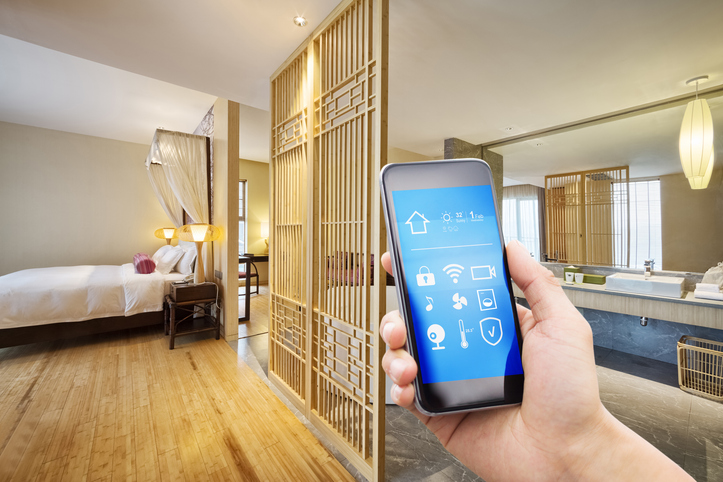Redefining Hospitality: Digital Solutions in Hotels - BMT
Contact
Redefining Hospitality: Digital Solutions in Hotels - BMT
The hospitality industry is in the midst of a profound transformation, driven by shifting guest expectations, rapid technological advancements, and evolving societal trends.
The hospitality industry is in the midst of a profound transformation, driven by shifting guest expectations, rapid technological advancements, and evolving societal trends.
These changes have been further accelerated by global events, leading to staff shortages and significant shifts in guest spending behaviours. As a result, the way hotels, resorts, and other hospitality venues operate and engage with their guests is being reshaped in unprecedented ways.
One of the most significant and complex changes in the hotel industry over recent years is the integration of advanced technology, particularly in response to the rise of the ‘bleisure’ economy.
As more travellers blend business with leisure, there has been a growing demand for services that cater to both professional and recreational needs. This includes flexible workspaces, enhanced Wi-Fi connectivity, and curated experiences that allow guests to seamlessly transition between work and leisure.
The rise of remote work and the digital nomad lifestyle has further fuelled the bleisure trend, making it a key factor in today’s hospitality landscape. However, this shift has also brought about heightened expectations from guests who now seek personalised, seamless experiences that go beyond traditional notions of luxury or comfort.

These guests, who often have significant spending power, expect hotels to deliver tailored experiences that align with their individual preferences and values.
In this new era, the modern guest is not just looking for a place to stay; they are searching for an experience that resonates with their personal aspirations, challenging hotels to innovate and meet these evolving demands.
Hotel personalisation apps have become a standard value-add for many of the top hotel chains, allowing guests to control every aspect of their stay from their mobile devices.
Earlier this year, data from the Australian Bureau of Statistics highlighted the significant staff shortages challenging the hospitality sector. This shortage has caused operational strain, prompting a re-evaluation of service delivery models including more traditional luxury defining roles like concierges and valets.
The challenge lies in maintaining the high standards of service that guests expect, even with reduced human resources. A personalised hotel app in the guest's hand offers a seamless solution, enabling automated check-ins and check-outs, with mobile room keys conveniently assigned through the app.
These technologies streamline hotel operations and elevate guest experiences by offering conveniences like bypassing long check-in queues at peak times freeing up time for work or pleasure. Some hotels personalise in-room amenities like bedding, ambience, temperature, and scent preferences.
They also boost revenue by upselling products and services, such as wellness packages and personalised tours. These apps automate routine tasks, allowing staff to focus on personalised services, while allowing hotel operators to collect data that will enhance targeted promotions, loyalty programs, and overall guest satisfaction.
While technology offers numerous benefits, the goal is not to replace human interaction but to integrate it by removing the mundane tasks that can detract from meaningful human connections.
AI-driven chatbots can handle basic inquiries, allowing staff to focus on more complex guest needs or automated room technology can be controlled from a centralised desk or even the guest’s phone.
The challenge for the industry is to maintain the balance as it moves towards a more technologically progressive future. By embracing both technology and human interaction, the industry can continue to offer unique, memorable experiences that resonate with the modern traveller.
Staying ahead in the rapidly evolving hotel industry therefore requires continuous investment in technological advancements that enhance personalised guest experiences, whether for business, leisure, or a blend of both.
Fortunately, many of these essential upgrades are tax-deductible, providing a financial incentive to innovate.
For detailed information on the depreciation deductions available for these technological and design upgrades, contact BMT Tax Depreciation at 1300 728 726 or request a quote to support your journey towards a more integrated and personalised guest experience.
Related reading








